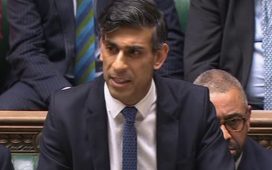With little more than a month until the UK’s third scheduled departure date from the EU, the path ahead remains deeply uncertain. So what might happen in the coming 34 days – and might we see a no-deal Brexit happen anyway, despite the efforts of parliament?
What is the official schedule?
While the date for Brexit is still 31 October, this will only happen if Boris Johnson is able to agree a new departure deal with the EU, which is then approved by parliament. Under the so-called Benn Act – the backbench-originated measure pushed through parliament just before the Commons was suspended – if by the end of the European council summit on 17 and 18 October a deal has not been reached, Johnson is obliged to seek a new Brexit extension until at least 31 January.
What are the chances of a deal at the summit?
While it is possible the potential chaos of no deal will produce last-minute compromises on both sides, the signs do not look good. In particular, a deal would almost certainly require the support in parliament of ex-Tories stripped of the party whip and some Labour rebels; after the toxic atmosphere in the Commons this week, this appears unlikely.
Will Johnson abide by the Benn Act?
The prime minister has repeatedly said he will comply with the law, but also that he will not seek an extension. The contradiction has prompted speculation over other means Johnson could take to get round the obligation.
Raised as a possibility by Sir John Major in a speech on Thursday evening, this scenario would involve an edict being passed by government ministers without the involvement of the Queen, via an arcane procedure. However, a series of legal experts have said this seems impossible, not least because it would contravene the bill of rights, which dictates the principle of parliamentary sovereignty. Eirik Bjorge, a professor of public and international law at Bristol University, told the Guardian the idea was a “non-starter”.
What about the Civil Contingencies Act?
This 2004 act, introduced under Labour, allows a government at a time of national crisis to declare an emergency and, for a limited period, exercise sweeping executive powers. Some have speculated whether Johnson could use this to ignore the Benn Act, or to call an election, thus dissolving parliament. However, this also seems a legal stretch, given the fairly strict definitions of what constitutes an emergency and the fact it could be challenged by parliament. Mark Elliott, a professor of public law at Cambridge, tweeted that it was “very difficult to see” how the conditions for an emergency could be met.
A “second letter”?
Another mooted plan is that Johnson could, as dictated by the Benn Act, write to the EU seeking an extension, but also attach a second letter or note, explaining that the government did not want the new deadline, thus scuppering it. However, senior lawyers have said that such an action would very likely be seen as breaching the intent of the law, and thus expose Johnson to potential legal repercussions.
Could Johnson resign or be ousted?
The prime minister could step down rather than agreeing the extension, thus styling himself as something of a Brexit martyr for an upcoming election. The downside for him would be that the public might then lose any wariness of Jeremy Corbyn in Downing Street if they see him doing the job. Opposition parties could seek to oust Johnson via a no-confidence motion, but have said they first want to see a no deal on 31 October completely ruled out.
Could the UK regain EU membership after a 31 October breakup?
Even if Johnson succeeded in crashing out of the EU at the end of next month, a newly elected administration might still manage to repair the broken relationship, one prominent lawyer has suggested. Prof Mads Andenas QC, a former director of the British Institute of International and Comparative Law, said: “If the date is passed by tricks and cheating, and a new PM installed, there is nothing barring the two sides to the exit, in the following week, giving a new extension. When parties to a treaty agree, they most certainly can do this … In that situation a new government could also choose to withdraw the article 50 application altogether,” adding: “The ECJ is not likely to entertain any challenge.”














